76% of Ghanaians Want President Mahama to Declare a State of Emergency on Water and Forests
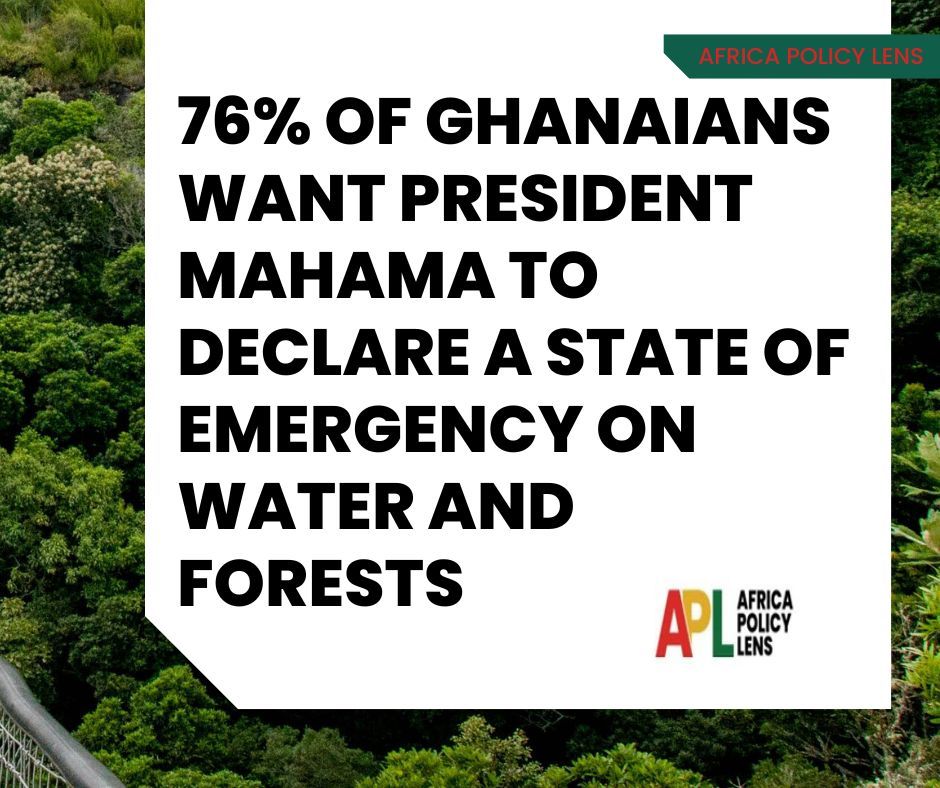
Introduction
In the aftermath of President John Mahama’s Meet the Press engagement on September 10, 2025—during which he addressed a range of national concerns, including the contentious issue of illegal mining—Africa Policy Lens (APL) initiated a public opinion survey to assess the broader Ghanaian public’s perception of the Government’s stance and efforts in combating illegal mining (commonly referred to as galamsey).
The survey was conducted over six days, from September 16 to September 21, 2025. It targeted adult Ghanaian citizens whose names and telephone numbers were listed in the certified 2024 voter register, thereby ensuring a nationally representative sample. Each respondent received a brief, structured questionnaire designed to be completed within approximately three minutes.
At the close of the polling period, a total of 6,247 individuals had successfully participated in the survey. The findings presented below offer empirical insights into public sentiment regarding the Government’s anti-illegal mining posture, as articulated by the President.
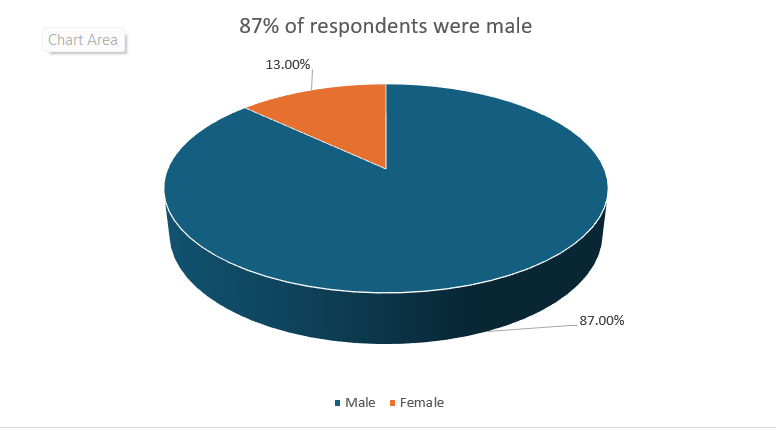
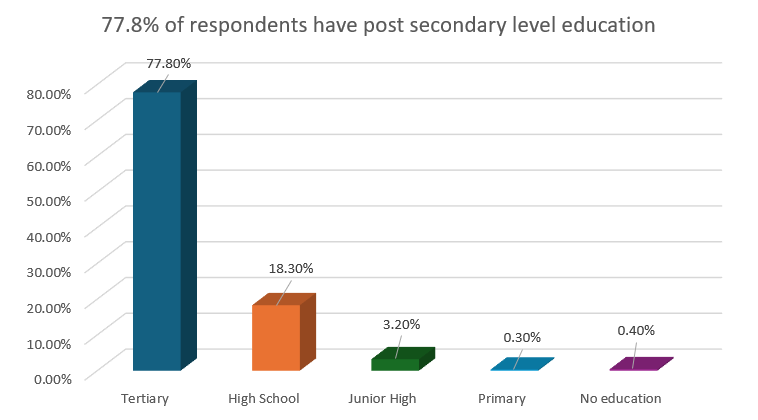
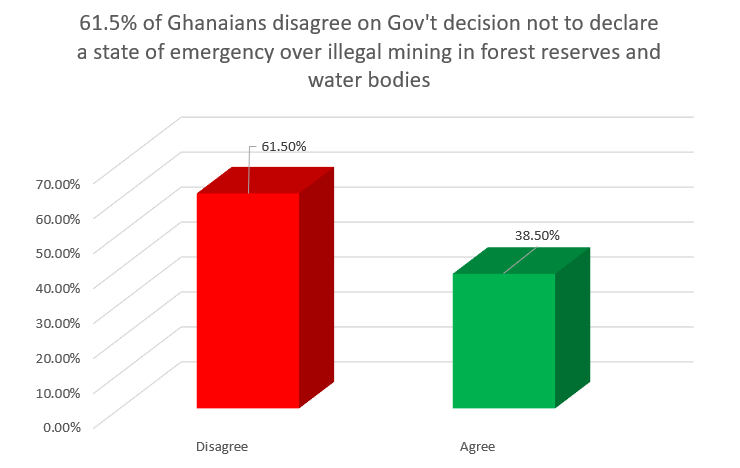
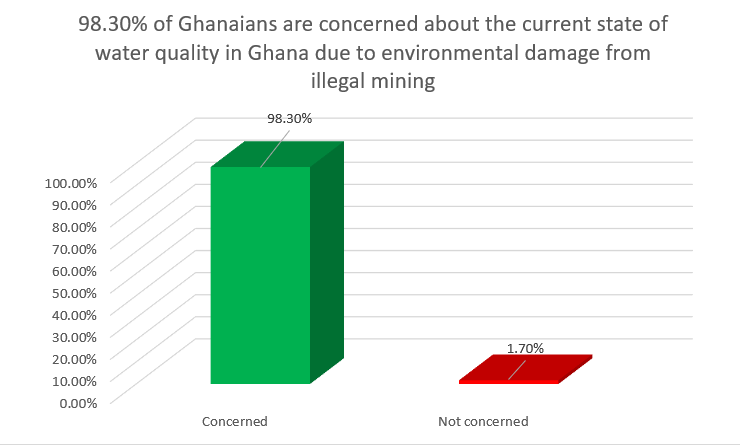
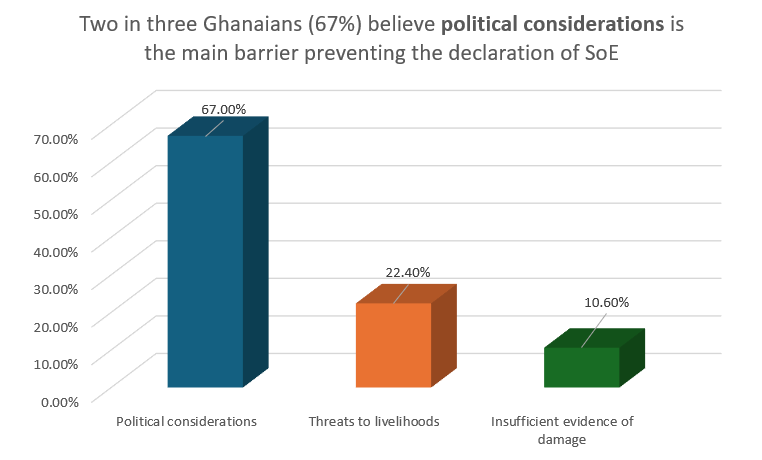
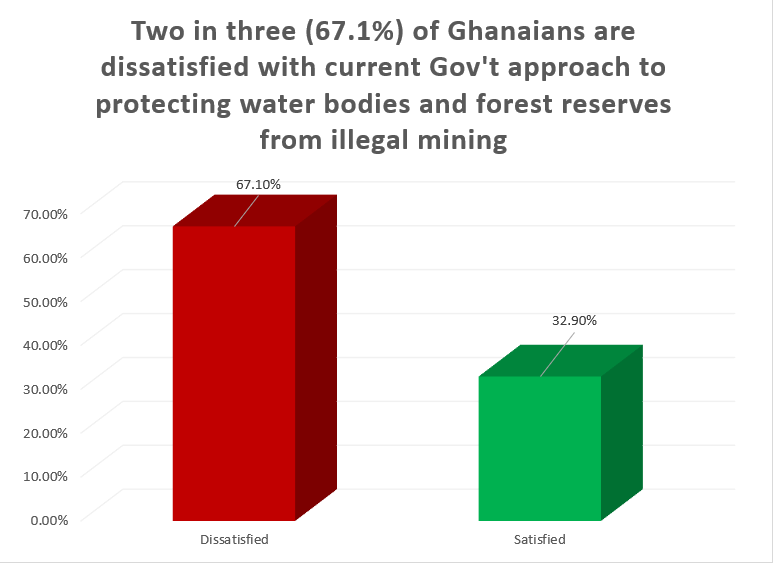
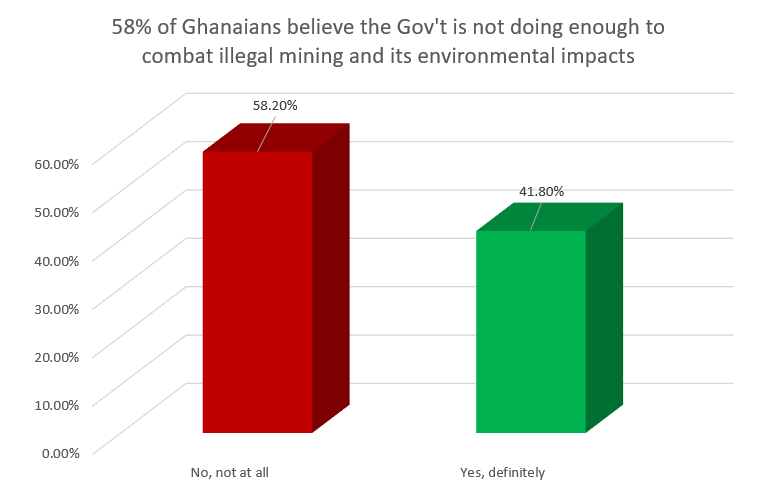
Conclusion
The findings from the survey underscore a deep and widespread concern among Ghanaians regarding the deteriorating condition of the nation’s water bodies. This concern reflects growing public awareness of the environmental consequences of illegal mining and deforestation, particularly their impact on freshwater ecosystems and forest reserves.
Notably, over 75% of respondents expressed strong support for the declaration of a state of emergency as a strategic intervention to halt ongoing environmental degradation. This sentiment suggests that a significant majority of the population views such a declaration not merely as symbolic but as a potentially transformative policy measure capable of enforcing regulations and signaling political will.
However, this optimism is tempered by skepticism about the political feasibility of such a move. Approximately two-thirds of respondents indicated that they do not believe the president will declare a state of emergency, citing political considerations as a likely deterrent. This perception points to a trust deficit in political leadership and raises critical questions about the alignment between public environmental priorities and executive decision-making.
Taken together, the data reveal a complex interplay between public demand for decisive environmental action and perceived political constraints, highlighting the urgent need for transparent, accountable, and responsive governance in addressing Ghana’s environmental crisis.